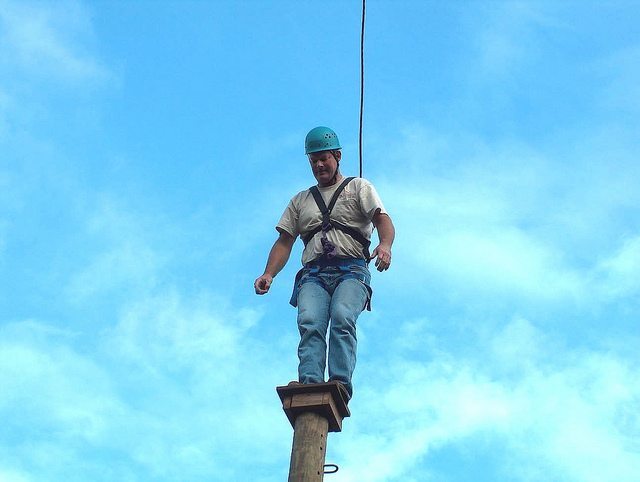The ability to collaborate is fast becoming a must-have skill in our post-industrial, innovative economy. Whether you’re a solopreneur developing the next great thing in your garage or an employee at a large corporation, it is becoming increasingly popular for you to be called on to join ad-hoc teams of colleagues with varying skill sets while also being required to produce better results with fewer resources.
Since collaboration is the new black, it’s time to brush up on the skills you may not have used since you stopped making up games in the school playground. Here are some common pitfalls collaborators face, and tips on how to avoid them:
The Myth of the Lone Genius
Does this sound familiar? If you want to write the great American novel, you have to lock yourself in a cabin with a computer and a plentiful supply of scotch (or your poison of choice) and throw yourself at the keyboard until your fingers bleed. If you want to find the cure for cancer, you have to live in a corner of a lab somewhere, just you and your white mice, and stare through the microscope until the truth comes into focus.
Those old myths just aren’t true. Almost every great work of art or scientific discovery was the result of a collaborative effort. Monet and Renoir worked side by side in developing the impressionist school of art; Picasso and Braque worked side by side pushing representational art to its limits with cubism. Albert Einstein created the most famous equation in history, but he was so bad at math he decided to collaborate with his college friend and mathematician Marcel Grossman.
Tip – If you want to kick your creative skills into high gear, find yourself a peer group. It can be a writing workshop, an art class, a scientific reading club – anything that brings you into regular contact with like-minded individuals who can give you feedback and, possibly, inspire you.
*Bonus Tip* – Worried that someone might steal your idea? Don’t be. Competition is a form of collaboration, and sometimes the best motivation is the fear that someone might steal your thunder.
My Words Are My Babies
Most of us struggle to create. As a result, we become very attached to our creations, because every word, every image, every algorithm carries our blood, sweat and tears on its back. When our creative expression serves as a token of our self-esteem, any critique of our work feels like a personal attack. We dig in our heels and resist change, often at the own expense of our work.
Tip – If you recognize some of yourself in this description, try giving your work to someone you trust and asking them to edit it. When they hand it back to you, don’t compare the new version to the old version to see what changes were made. Just review the new version on its own merits. If something is obviously missing, put it back; but otherwise, see if the new version leads you in different directions, or inspires you.
*Bonus Tip* – Remember that you are not your work, and that your harshest critics are often your best friends. That’s the path to continuously improving your abilities, as opposed to resisting change.
Demanding Final Cut
Many people believe that they are collaborative because they are open to feedback and criticism — so long as they reserve the right to make the final decision about any changes to their work.
The essence of collaboration is the presence of a shared goal. If you aim to preserve your vision at all costs, you lose the chance to co-create something better than you ever could have imagined on your own. You may think you are preserving your unique vision, but in fact, you are limiting both your potential and the potential of your collaborators.
Tip -Look to some of the most successful collaborators on the planet – improv actors. In improv, the rule is you never say “no” when someone takes a scene in a new direction, you always say “yes, and.” The troupe, then, collectively heads in the new direction until it is exhausted or until someone comes up with another direction that they think is better.
To learn to flex your collaborative muscles, the next time someone gives you feedback on your work and you want to say, “No, that doesn’t fit with my vision,” say “Yes” and follow the feedback as far is you can. Maybe, in the end, your work will benefit. Certainly your working relationships will.
If these tips on becoming a better collaborator seem at odds with your sense of how things work, you may still be trapped in an industrial-age mindset in which your co-workers were your competitors, not your resources. That was true in the past, when it was realistic to plan a vertical career path within one organization, but as corporate hierarchies get flattened and we all become responsible for creating our own income-generating possibilities, the skills necessary for success are changing.
So just say “Yes, and” give these tips a try. Until a collaborator gives you a better idea.






